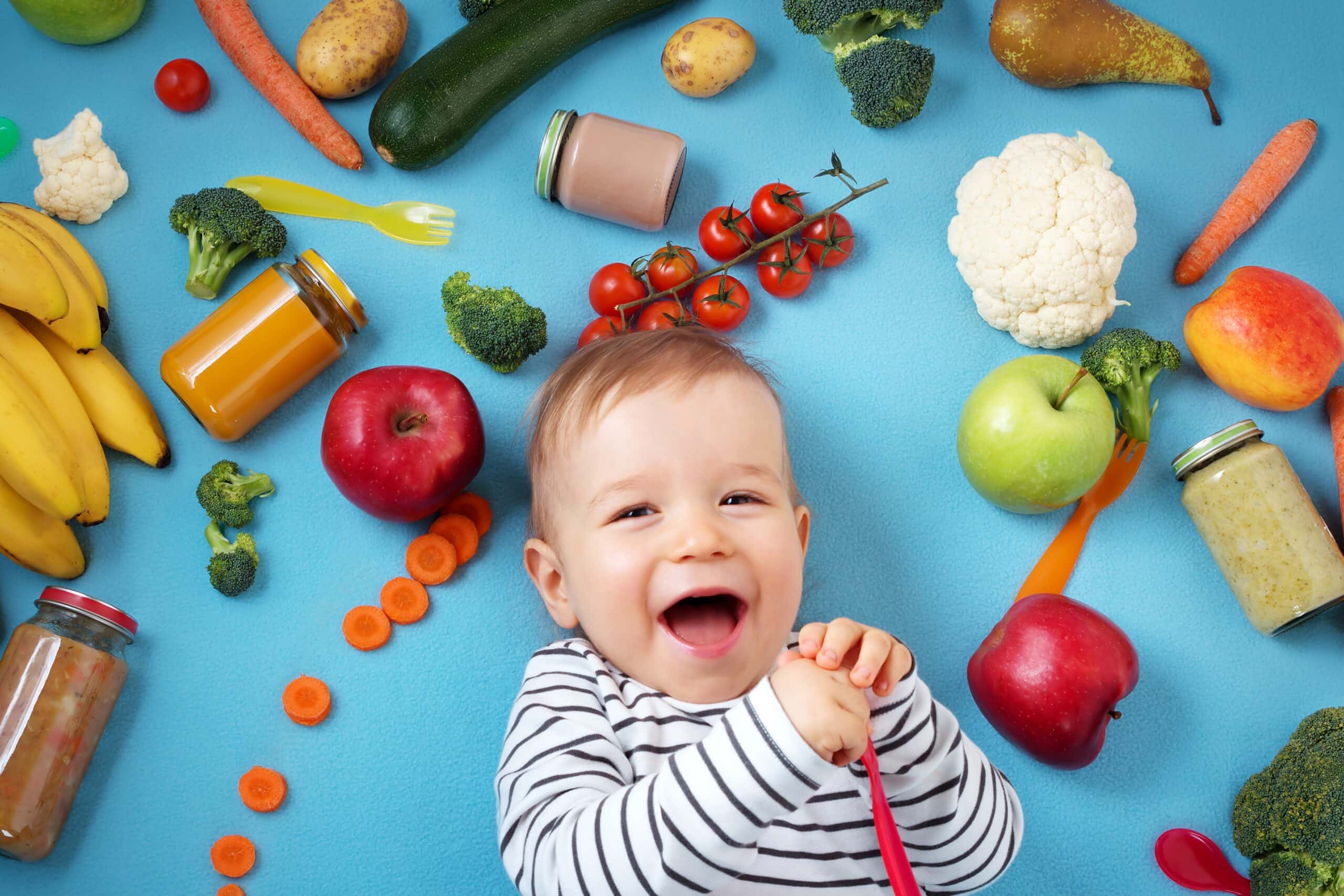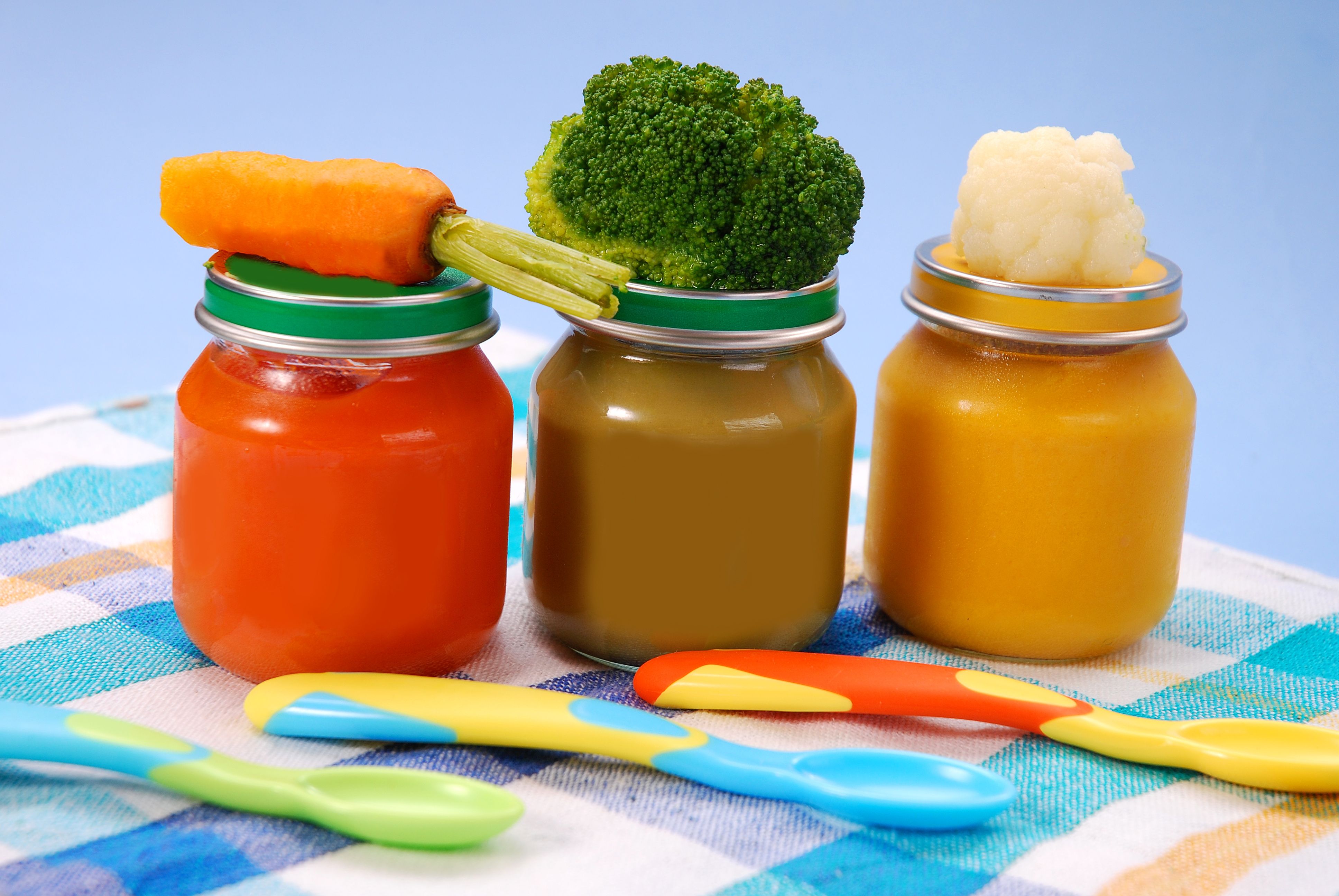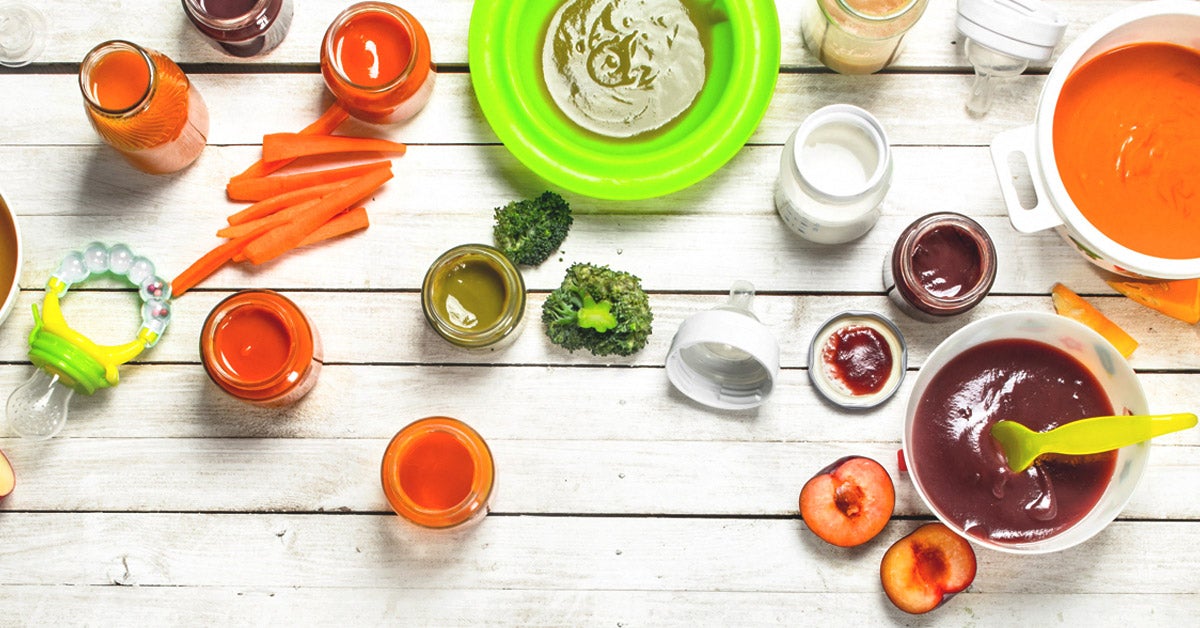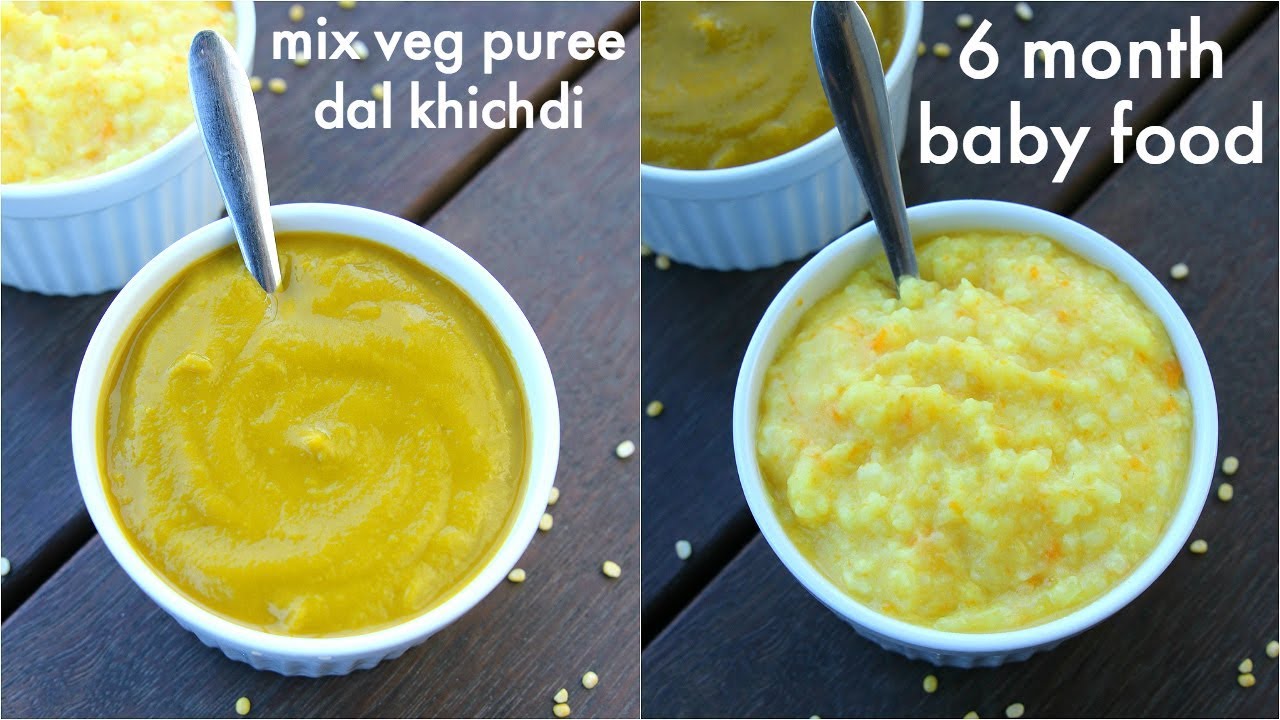
Introducing solid foods to your baby is an exciting milestone for both of you. It’s a chance to offer new flavors and textures, and to expand your little one’s palate. At BabyCenter, we understand the importance of providing nutritious and delicious food for your baby’s growing body and developing taste buds. That’s why we’ve gathered some mouthwatering recipes that are perfect for babies aged 6 to 12 months. Whether you’re a seasoned pro or a newbie in the kitchen, these recipes will surely delight your little one.
One of our favorite recipes for babies is Lara Karmel’s Superfood Cereal. This simple yet nutritious breakfast is packed with fiber and iron, making it a great way to start your baby’s day. To make this cereal, all you need is barley flakes, oatmeal, and green plantain powder. Boil the ingredients until soft, then mash them together until smooth. You can also add some breast milk or formula to make it creamier and more flavorful.
If you’re looking for something sweeter, why not try our Sweet Potato and Berry Delight? Sweet potatoes are a nutritional powerhouse, rich in vitamins A and C, as well as fiber. Just bake a sweet potato until soft, then mash it together with some mashed berries. Your baby will love the natural sweetness of this combination, and you’ll love how easy it is to make. It’s a win-win!
Another great option is introducing eggs to your baby’s diet. Eggs are a superfood, packed with high-quality protein and nutrients like choline, which promotes brain development and good eyesight. You can start by adding a soft-cooked or whipped egg yolk to your baby’s mashed fruits or vegetables. As your baby grows, you can gradually introduce the egg white, ensuring a well-rounded diet for your little one.
When your baby is ready for more texture, you can offer them mashed butterbean and pasta. This Mediterranean-inspired dish is not only delicious, but also provides a good source of protein and fiber. Just cook the butterbeans until soft, then mash them with some cooked pasta. You can also add a drizzle of olive oil for a touch of flavor. Your baby will love exploring the different textures and flavors of this dish.
One final recipe that we recommend is the Beetroot and Potato Whipped Delight. Beetroots are a great source of iron, while potatoes are a filling and nutritious addition to any meal. To make this dish, simply boil some beetroots and potatoes until soft, then mash them together until smooth. Your baby will enjoy the vibrant color and earthy taste of this whipped delight.
We hope these ideas inspire you to get creative in the kitchen and ensure your little one gets the nutrition they need at every stage. Remember to always consult your pediatrician before introducing new foods, and have fun exploring different flavors and textures with your baby. Happy cooking!
Contents
Delicious and Nutritious Baby Food Recipes
When it comes to introducing solid foods to your baby, nutrition is key. It’s important to offer a variety of healthy and flavorful foods to help them develop a taste for different flavors and textures. Below are some delicious and nutritious baby food recipes suitable for six-month-olds and up.
1. Carrot and Apple Puree
This is a popular first food for babies as both carrots and apples are gentle on their developing digestive systems. Steam or boil carrots until soft, then puree them together with cooked apple until smooth. This puree is full of vitamins and a great source of iron.
2. Butternut Squash and Chicken Goulash
A hearty and flavorful option, this goulash is a delicious combination of butternut squash, chicken, and various veggies. Cook the chicken until fully cooked, then dice it into small pieces. Steam or boil the butternut squash and veggies until soft, then puree everything together. This dish is packed with essential nutrients for your growing baby.
3. Peach and Pear Smoothie

For a refreshing treat, try this summer delight smoothie. Peel and pit a ripe peach and pear, then blend them together until smooth. This fruity smoothie is not only delicious but also helps support healthy eyesight thanks to the vitamin A content in peaches.
4. Baby-friendly Pasta Salad
Pasta can be a great option for babies who are getting used to more textured foods. Cook a small quantity of soft-cooked pasta according to the package instructions. Chop up cooked veggies like carrots, beans, and bell pepper into tiny pieces and mix them with the pasta. Drizzle a little olive oil for added taste. This dish is perfect for self-feeding and developing their fine motor skills.
Remember, when introducing new foods to your baby, it’s important to do so gradually and offer a variety of options. Always consult your pediatrician or a certified nutritionist if you have any specific questions about your baby’s diet.
Recipes for 6 to 12 Month Olds
When it comes to feeding infants between 6 to 12 months old, it’s important to provide them with delicious and nutritious meals that are appropriate for their age and developmental stage. Here are some simple and tasty recipes that will help ensure your little ones are getting the right nutrition they need:
- 1. Mashed Potatoes: Begin by boiling some potatoes until they are soft. Mash them up and add a little water or breast milk to achieve the desired consistency. This recipe is a great source of fiber and essential nutrients such as iron.
- 2. Green Pea Puree: Cook some peas until they are soft, then blend them until smooth. This puree is packed with vitamins and minerals, plus it’s a great way to introduce your baby to the taste of vegetables.
- 3. Carrot and Apple Mash: Boil some carrots and apples until they are tender, then mash them together. This combination of fruits and vegetables provides a sweet and nutritious meal for your little one.
- 4. Apricot Oatmeal: Cook some oatmeal in water or breast milk, then blend in some apricots for added flavor. Oatmeal is a healthy and hearty breakfast option, and the addition of apricots provides both taste and nutrition.
- 5. Mediterranean Rice: Prepare some rice and mix in small, cooked and mashed vegetables such as peas, carrots, and green beans. This colorful and flavorful dish introduces your baby to a variety of tastes and textures.
These recipes are just a few examples of the many delicious and nutritious meals you can make for your 6 to 12-month-old. Remember to always consult with your pediatrician before introducing new foods to ensure they are appropriate for your child’s specific needs and development.
Dinner Recipes
When you begin introducing solids to your six-month-old, dinner can be an exciting time to experiment with different flavors and textures. Here are some delicious and nutritious baby food recipes for 6 to 12 month olds:
| Recipe | Ingredients | Instructions |
|---|---|---|
| 1. Carrot and Butterbean Casserole | – 1 medium carrot – 1/4 cup cooked butterbeans – 1 tablespoon unsalted butter – 1/4 cup water or vegetable stock |
1. Roast the carrot with a little bit of olive oil until tender.
2. In a blender, combine the roasted carrot, cooked butterbeans, butter, and water or stock. Blend until smooth. 3. Serve it as a mash or dip for your little one. |
| 2. Mediterranean Vegetable Blend | – 1/2 cup cooked green beans – 1/2 cup cooked acorn squash – 1/4 cup cooked diced tomatoes – 1/4 cup cooked barley – 1 tablespoon olive oil |
1. In a saucepan, heat olive oil and sauté the green beans, acorn squash, and diced tomatoes until soft.
2. Add the cooked barley and stir well. 3. Mash or blend the mixture until it reaches the desired consistency. 4. Serve this flavorful Mediterranean combo to your little one. |
| 3. Apple and Pear Puree | – 1 apple – 1 pear – Water as needed |
1. Peel, core, and dice the apple and pear.
2. Steam or boil the fruits until soft. 3. Blend the cooked fruits with water until smooth and the desired thickness is achieved. 4. This fruity puree is a healthy and delightful meal for your baby. |
| 4. Apricot and Plantain Porridge | – 1/4 cup cooked apricot – 1/2 ripe plantain – Water as needed |
1. Mash the cooked apricot and ripe plantain together.
2. Add water gradually to make a smooth and creamy porridge. 3. Offer this nutritious combo to your little one for breakfast. |
| 5. Pea and Barley Delight | – 1/4 cup cooked peas – 1/4 cup cooked barley – Water as needed |
1. Blend the cooked peas and barley together until smooth.
2. Gradually add water to achieve a smoother texture if needed. 3. This easy-to-make dish is packed with fiber and minerals for your growing baby. |
Preparing meals for your six-month-old can be a fun and rewarding experience. Just make sure to read the pediatric guidelines for introducing solids and consult your baby’s pediatrician if you have any questions. Remember to offer a variety of fruits, vegetables, and pulses to ensure a balanced and nutritious diet for your little one.
Easy-to-Make Baby Food Ideas
When it comes to preparing baby food for your six-month-old, introducing new flavors and textures can be both exciting and challenging. We’ve put together a chart of nutritious and delicious recipes that are easy to make and perfect for those little ones who are just starting to explore solid foods.
Mashing and Mixing
One great way to introduce solid foods is by mashing soft fruits and vegetables. For example, you can mash a ripe banana with a fork until it has a smooth consistency. You can also try mashing cooked carrots or steamed peas for added variety. These small quantities of mashed food are appropriate for six-month-olds who are just beginning to develop their eating skills.
If you’re looking for something with a bit more texture, try mashing avocados or sweet potatoes. These foods are packed with valuable nutrients and are easy to prepare. Just make sure to remove any skin, seeds, or bones before mashing.
Introducing New Flavors

As your little one grows, it’s important to introduce a wide variety of flavors to their diet. One tasty option is to make a Mediterranean-inspired pasta sauce. Start by sautéing onions, garlic, and a mix of colorful vegetables. Then, blend it all together with cooked pasta to create a flavorful and nutritious meal.
If they’re accepting meat in their diet, you can try making a goulash. Slow-cooked with tender beef or chicken, vegetables, and a blend of spices, this dish is sure to impress even the pickiest eaters.
Superfood Ideas
Adding superfoods to your baby’s diet is a great way to ensure they receive all the necessary nutrients. One superfood that is both healthy and delicious is apples. You can steam or bake them until soft and then mash them for a smooth consistency.
Another superfood to try is quinoa. Cook it according to the package instructions and then mix it with some pureed vegetables or breast milk for added flavor. Quinoa is a great source of protein and fiber, making it an ideal addition to your little one’s diet.
Tasty Finger Foods

Once your baby is around 10 months old and has mastered the art of chewing, you can start introducing small, soft finger foods. Some good options include small pieces of bread or butterbeans. These foods are easy to pick up and chew, allowing your little one to practice their fine motor skills while enjoying a tasty treat.
Remember, always consult with your pediatrician before introducing new foods to your baby. They can provide guidance on what foods are appropriate and when to introduce them. Happy feeding!
Healthy and Tasty Dinner Options
When it comes to feeding your 6 to 12 month old baby, dinner time offers a great opportunity to introduce a variety of healthy and delicious foods. Here are some recipes and ideas to help you create nutritious and tasty meals for your little one.
Bananas and Cereal
One of the easiest dinner options for your baby is a combination of mashed bananas and cereal. Bananas are a favorite among babies because of their naturally sweet taste, and they are also a great source of potassium and vitamin C. Mix mashed bananas with some cooked infant cereal for a satisfying and nutritious meal.
Vegetable Purees
Introducing vegetables to your baby’s diet is essential for their nutrition. Pureed vegetables like carrots, spinach, peas, and sweet potatoes are all great options. They provide essential vitamins and minerals and are easy for your baby to eat. You can cook and puree these veggies to a smoother consistency or leave them slightly chunky for your baby to explore with their fingers.
Chicken and Vegetable Goulash
As your baby grows, they will need more protein in their diet. Introduce cooked and pureed chicken with mixed vegetables like carrots, peas, and potatoes in a flavorful goulash. This hearty meal provides essential nutrients and is sure to satisfy your baby’s appetite.
Pureed Fruits
Fruits are another important part of your baby’s diet. Pureed apples, peaches, and pears make for a sweet and nutritious dinner option. You can also try mixed fruit purees like apple and banana or peach and avocado for added flavors and nutrients.
Beans and Pulses
Beans and pulses are a superfood for babies with their high protein and fiber content. Pureed options like lentils, chickpeas, and black beans are suitable for this age group. They can be mixed with other vegetables to create delicious and nutritious dinners.
Beetroot and Pumpkin Sauce
For a burst of color and flavor, pureed beetroot and pumpkin sauce is a great option. Beetroots are a rich source of iron and pumpkin provides essential vitamins. This vibrant sauce can be served with mashed potatoes or as a side dish for other dinner options.
These dinner options not only provide essential nutrition for your baby but also expose them to a variety of flavors and textures. Always ensure that the foods you offer are age-appropriate and consult with a pediatric nutritionist if you have any questions or concerns about your baby’s feeding.
Source: BabyCenter Illinois
Feeding Your Baby the Right Way
Feeding your baby the right way is essential for their health and development. As they transition from milk to solids, it’s important to introduce a variety of flavors and textures to expand their palate and provide necessary nutrients. Here are some tips and recipes to ensure your baby is getting the proper nutrition:
1. Start with Stage 1 Cereals
When your baby is around 6 months old, you can begin introducing solid foods. Start with a single grain cereal, like rice or oatmeal, as they are easy to digest and less likely to cause allergies. Mix the cereal with breast milk or formula until it reaches a smooth consistency.
2. Introduce Fruit and Vegetable Purees
Once your baby is comfortable with cereals, it’s time to introduce pureed fruits and vegetables. Start with single ingredient purees, such as mashed bananas or cooked apples. As your baby gets older, you can mix different fruits and vegetables together to create a variety of flavors. Remember to introduce one new ingredient at a time and wait a few days before introducing another to check for any allergic reactions.
3. Offer Healthy Finger Foods
As your baby becomes more skilled at eating, you can start offering small pieces of soft foods for them to self-feed. Cooked and mashed beans, soft cubes of tofu, and diced fruits like pears or peaches are suitable finger foods. Be cautious with food sizes and textures to prevent choking hazards.
4. Experiment with Different Protein Sources
Introducing protein to your baby’s diet is important for their growth and development. Pureed meats, such as chicken or salmon, are good options. You can also try mashed beans or lentils for a vegetarian protein source. Remember to cook the meat thoroughly and blend it to a suitable consistency for your baby.
5. Add Wholesome Grains and Superfoods
As your baby grows, you can introduce more complex flavors and textures. Cooked quinoa, brown rice, or whole wheat pasta are good options for wholesome grains. You can also add nutrient-rich superfoods like spinach or yam to their meals to boost their intake of vitamins and minerals.
6. Offer Balanced Meals throughout the Day
Aim to offer your baby three main meals and one to two snacks per day. Lunch and dinner can include a combination of grains, proteins, vegetables, and fruits. Remember to consider the appropriate portion size for your baby’s age and make sure the meals are well balanced to provide all the necessary nutrients.
7. Read Pediatric Articles for Guidance
If you have any questions or concerns about your baby’s diet, it’s always a good idea to consult pediatric articles or speak to your pediatrician. They can provide guidance specific to your baby’s needs and offer recommendations based on their age and development.
Feeding your baby the right way is a journey that requires patience and experimentation. Remember to introduce new foods gradually, offer a variety of flavors and textures, and pay attention to your baby’s cues. With the right approach, you can ensure your baby gets the necessary nutrition while enjoying tasty and nutritious meals.
